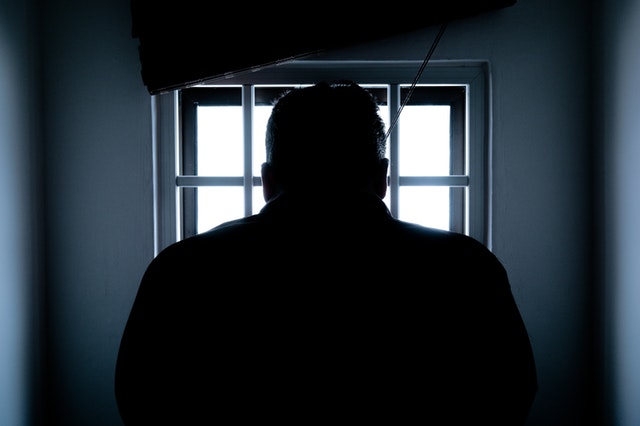Reviewing: Mindhunter by John Douglas by Mark Olshaker
The Motive:
What’s the evidence for criminal profiling? And is criminal profiling actually evidence?
In an earlier blog a prominent UK forensic psychologist cautioned against sensational representations of criminal profiling. But that sensation came from somewhere, and a primary source was certainly the research and results produced by a specialist group of criminologists, the FBI Behavioural Science Unit. Mindhunter tells their story.
The Evidence:
It started as an exercise in data mining, although we aren’t talking about mass analysis of huge datasets, the so-called big data of today. Instead, this was small scale: FBI agents including John Douglas interviewed incarcerated murderers attempting to find principles that could help understand (and, ideally, identify) the perpetrators of unsolved crimes. Such close access to these rare offenders made Douglas and his team unique. While most criminal investigators will work a whole career without meeting a serial murderer, suddenly Douglas’s team had multiple reference points to extrapolate from. This book documents Douglas’s connection with some of the most notorious cases in living memory. The Manson Family? Check. Son of Sam? Check. Edmund Kemper? Check. Even, tangentially, the Yorkshire Ripper.
Make no mistake, this book tells a compelling story, with one incredible scene after another. Such as Douglas informing astonished detectives that “the killer would have a speech impediment” despite their being no witness evidence to that effect (or even, at all!). Or how about telling investigators to look for an offender with “a police-type dog such as a German shepherd or a Doberman”, where no-canine evidence was found at the crime scenes (and yes, they arrested someone with exactly such a dog). This is undoubtedly exciting from a reader’s perspective, but less helpful for those trying to understand the profiling methodology in use. However, it soon becomes apparent Douglas relied upon his intuition and broad knowledge of violent offenders and their crimes. Expecting a human process not to incorporate a measure of gut-feel, hunch and supposition is unrealistic, but would a criminal court be comfortable with major elements of a prosecution arising from pure intuition? Even during the era Douglas describes, not always. In one section of the book Douglas described being portrayed by the defense team in a trial as a “voodoo man”. In fairness, when describing how he used the available evidence to place himself “mentally and emotionally in the head of the offender“, Douglas acknowledged his own uncertainty around precisely how that works.
Although I came to this text looking for background material relevant to the creation of fiction, I was uncomfortable at having to suspend disbelief to find it. Perhaps I’d been primed by David Canter’s sceptical remarks in Forensic Psychology, and his research finding no evidence for the “organised/disorganised” offender classification developed by Douglas’s unit. There is no doubt that John Douglas and his team were at this time uniquely exposed to the extremes of violent crime, and that their expertise was much sought after by investigators. However, as helpful as expert direction might be, might expert misdirection be similarly damaging?
Other commentators have expressed doubts before. In 2007, Malcolm Gladwell gave a scathing assessment of criminal profiling in a piece for the New Yorker. In 2010, another round of unfavourable press (for example here, and here) questioned the value of criminal profiling. A 2011 review of the field by Birmingham University academics concluded that profiling promised more than it actually delivered. There is now a strong tide of well-informed opinion questioning and thus undermining the credibility of the field.
Such credibility matters, since the esteem in which profile evidence has been held means miscarriages involving profiling are not unknown, either in the UK or the US. It is therefore understandable that the topic remains a live research concern, and criminal profiling earned a starring role in a recent academic text on wrongful convictions. Unsurprisingly, given what Douglas had seen, he made a number of supportive remarks through the text around the imposition of the death sentence. However, nobody can deny that capital punishment introduces a very real risk that we bury mistakes before the chance arises to correct them.
The Verdict:
The more broadly I read on this topic, the more my excitement about profiling withers. Whilst that might have been David Canter’s objective, it certainly wasn’t what John Douglas intended. This book describes a point in time when criminal profiling was emerging as a strange kind of superpower, but now that more results are in, the assessment has changed. How might that impact crime fiction? Well, the nice thing about fiction (a.k.a. making things up) is that everything can remain in play. However, in the modern world, intuitive, mind-of-a-killer style profiling is less likely to be considered evidence in its own right but rather, informed speculation that might help guide an investigation. The style of analyst presented in Mindhunter would expect additional obstacles from an increasingly sceptical system: no automatic respect, less latitude, and more difficulty convincing their colleagues.
Ultimately this book is notable not only for describing fascinating groundwork that went on to inform modern criminology, but also as a biography of an investigator looking back over an incredible career. Some have complained about Douglas’s ego, but for any sense of self to survive a lifetime of such crime scenes, ego seems pretty much a given. However, this is not the book to provide a scientific explanation of how the Serial Crime Unit profiling techniques actually worked, and I suspect such a book could not actually be written. David Canter, it seems, was right when he suggested FBI profiling evidence of that time was based mainly on the personal experiences of the special agent involved. That doesn’t mean this book was a bad read – far from it – and it was in many ways more engaging than Canter’s own text. But while Forensic Psychology was unlikely to be described as a page turner, it trumps Mindhunter in this key-respect: those seeking an understanding of current thought in this area of criminology won’t find it here.



Recent Comments